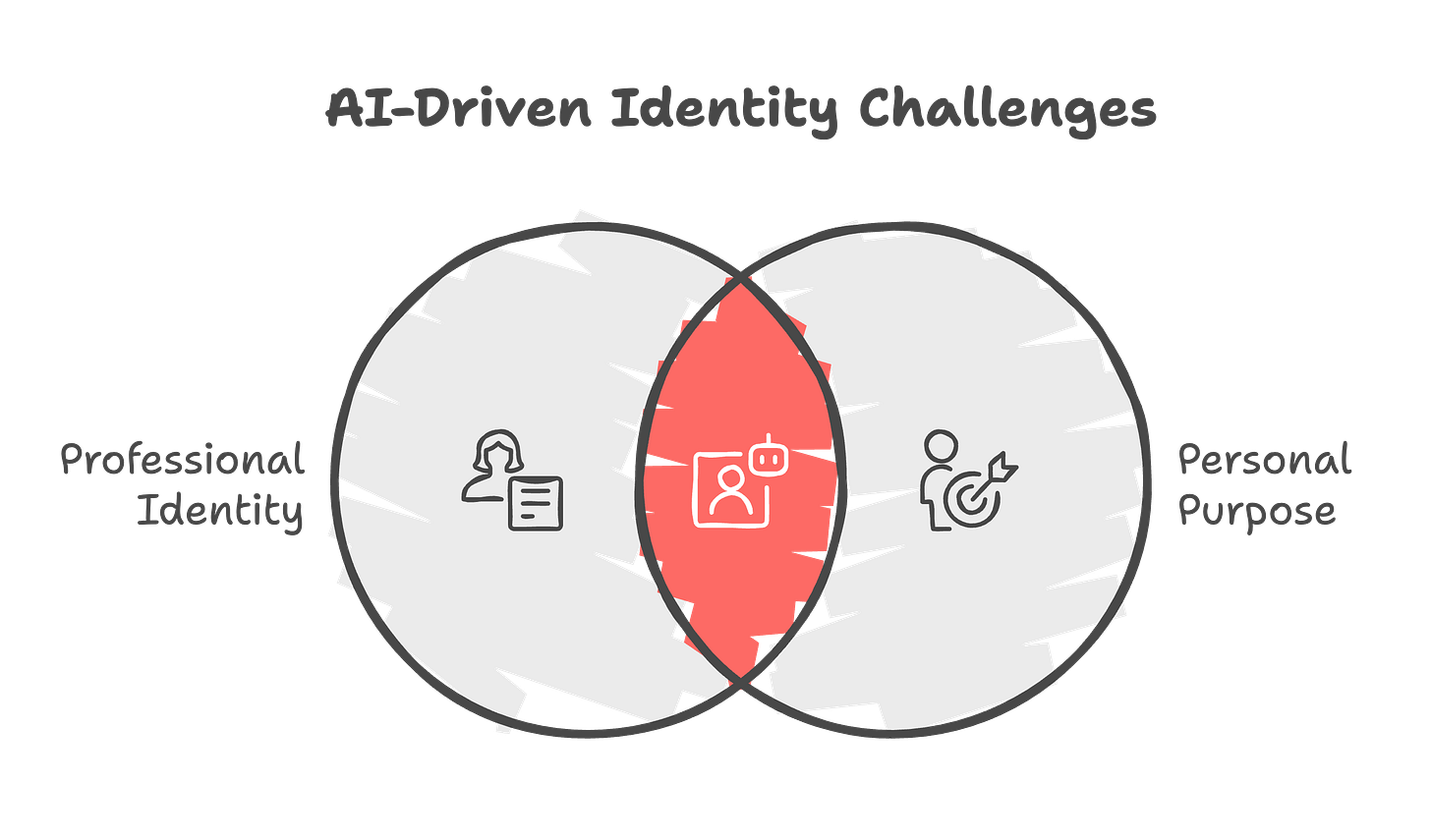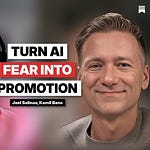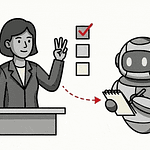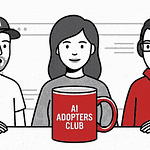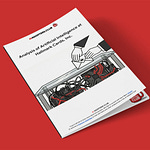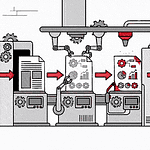Hey Adopter,
Ever caught yourself introducing yourself with your job title at a party?
"Hi, I'm [name], I'm a [insert impressive-sounding role here]."
Yeah, we've all been there. In our world of back-to-back meetings and endless Slack notifications, it's easy to let our work become our entire identity.
But here's the thing that's keeping me up at night: As AI reshapes our workplace faster than a Gen Z-er can say "okay boomer," millions of us are facing an identity crisis. What happens to our sense of purpose when ChatGPT can write our reports, or when algorithms can manage our projects?
Purpose 2.0?
I recently had a fascinating conversation with Craig Filek, the creator of Purpose Mapping and co-founder of Purpose.ai, about this very challenge. And let me tell you, it was an eye-opener.
As Craig put it during our conversation:
"Purpose is existential. From your first breath till your last, your purpose is the same. It's why you exist... Mission is strategic. If purpose is the why, mission is the what? So what mountain am I going to climb?"
The Real Transformation
Here's what's really going on: We're not just facing a technological transformation – we're experiencing a fundamental shift in how we define ourselves and our worth. Craig shared something that hit home: Purpose isn't what you do, it's why you exist. Your job title? That's just your current mission.
Think about it this way: When you learned to drive, did you become a "car operator," or did you gain freedom to explore new places? When you mastered Excel, did you become a "spreadsheet manager," or did you gain the power to analyze and make better decisions?
The same principle applies to AI. It's not about what tasks AI might take over – it's about how we can use AI to amplify who we really are and what we're truly meant to do.
Key Insights for the AI Age
Here are some key insights from my conversation with Craig that might just change how you think about your relationship with AI:
Purpose vs. Mission Your purpose remains constant throughout your life – it's your unique pattern, like a fingerprint. Your job or "mission" is just one way you express that purpose at a given time. When AI disrupts your current mission, your underlying purpose doesn't vanish – it's an opportunity to express it in new ways.
The Identity Trap Many successful professionals (yes, I'm looking at you, fellow manager) fall into what Craig calls the "first mountain trap." They achieve success in one area and, when faced with change, try to replicate the same pattern instead of exploring new heights. Sound familiar?
The Real Opportunity Instead of asking "Will AI take my job?" try asking "How can AI free me to focus on what truly matters?" Craig suggests focusing on your "zone of genius" – those unique abilities that light you up and put you in a flow state.
What This Means for You
Start mapping your own purpose beyond your current role. What patterns have followed you throughout your life? What activities put you in a flow state? These aren't just feel-good questions – they're your competitive advantage in an AI-driven world.
For example, if you're a project manager who loves bringing order to chaos, that skill isn't limited to managing Gantt charts (which AI might handle soon). It could evolve into orchestrating complex AI implementations or helping teams navigate technological change.
The truth is, AI isn't here to replace your purpose – it's here to help you express it more powerfully. While AI handles the routine tasks, you can focus on the uniquely human elements of your work: building relationships, showing empathy, making complex judgment calls, and innovating in ways that machines simply can't.
Take Action Now
Want to start discovering your own purpose? Craig has generously offered AI Adopters Club readers special access to try the beta version of Purpose.ai.
You can access it here: purpose.ai/adaptandcreate
I challenge you to reflect: What aspects of your work light you up that no AI could replicate?
In the world of AI, the most valuable skill isn't coding or prompt engineering – it's knowing who you are and what unique value you bring to the table.
Adapt & Create,
Kamil



